What makes this form of Elohai Neshamah exceptional is its length, suggesting either that our more familiar form of Elohai Neshamah is abridged, or else that the text was utilized by some medieval Jews as the basis for a daily vidui (confession). Specific to the unique form of Elohai Neshamah in the Ets Ḥayyim, here is Dávid Kaufmann from his article, “The Prayer-book According to the Ritual of England before 1290” in The Jewish Quarterly Review, vol. 4, no. 1 (Oct 1891), pp. 20-63.
As an instance of the valuable historical and critical results obtained by the examination of this MS., I may mention the solution it offers of a difficulty at the beginning of the morning prayers, which has hitherto puzzled commentators and translators; viz., the determination of the exact meaning of the words מודה אני לפניך in אלהי נשמה, which seem to have no obvious relation to their context. The grammar forbids the phrase being rendered as an expression of gratitude. Nor does it apparently refer to confession, for no confession follows. The difficulty, however, merely indicates the hiatus in the passage which is supplied by the English reading. Nothing less than a complete confession of sins was once daily recited at this stage of the morning devotions. The phrase מודה אני לפניך is the sole fragmentary relic we have left of it. But the old English Nusaḥ has preserved the original for us in its integrity…
Given the mature content of this vidui, I suspect it would likely have only been considered appropriate for adults, and so became obscure for those introduced to the practice of reciting a version of Elohai Neshamah as children — a form that was reified by setting an exact gematria for prayers (as was fashionable at the time, especially among German rabbinic authorities who were critical of what they considered the innovations of the Jews of England. The employ of authoritative gematria to the text of prayers introduced a level of control on scribes responsible for copying and disseminating established nusḥaot of the matbe’ah tefillah. For a community undergoing forced exile in the late 13th and early 14th century, the survival of such unique liturgical forms likely became impossible under this constellation of cultural and existential threat. We are grateful to the University of Leipzig for sharing with us the page images of the Ets Ḥayyim containing this text. –Aharon Varady
| Source (Hebrew) | Translation (English) |
|---|---|
אלהי, נשמה שנת׳ בי טהורה, אתה בראתה, אתה יצרתה ואתה נפחת(ה) בי ואתה משמרה בקרבי ואתה עתיד ליטלה ממני ואתה עתיד להחזירה בי לעתיד לבא. |
My elo’ah the neshamah[1] Soul. Here an embodied entity distinguished from literal breath. that you granted me is pure – you shaped it you formed it you breathed it into me you look after it within me and in time, you will take it from me and in time, you will return it to me in the time that is coming. |
כל זמן שהנשמה תלויה בקרבי מודה אני לפניך יי אלהי ואלהי אבותי, שאין אני עז פנים וקשי עורף לומר לפניך יי אלהי ואלהי אבותי, נקי אני ולא חטאתי, כי [מה] מועיל שפת שקר ומה יתרון לבעל הלשון לומר לפניך זך לקחי ואון לא פעלתי הלא חוצב אבן ובונה עיר אשר לא יוכלו גריה להסתר במחבואיה מפניו, |
As long as the neshamah is suspended within me I am grateful to you YHVH my elo’ah and elo’ah of my ancestors for I am not so bold and arrogant to declare before you: “YHVH my elo’ah and elo’ah of my ancestors, I am clean and I have not transgressed.” – For what profits a lying tongue?! and what advantage is there for the speaker to say before you: “my doctrine is pure” (Job 11:4) and “I have done no wrong”? (Cf. Proverbs 30:20) Is it possible for a stonecutter to build a city with hidden places capable of concealing its residents from your face? |
כן יי אלהינו לא אוכל להתעלם ממך, כי ארחי ורבעי זרית ואת כליותי קנית, לכן אמרתי אל לבי טוב להודות ליי׳ ולתת תודה לאלהי ולומר: אל נא רפא נא לי את אשר נואלתי ואת אשר חטאתי. |
Yes, YHVH our elo’ah, I cannot disregard you for you measure my activity and my rest[2] Psalms 139:3 and you behold my conscience[3] lit. kidneys, Cf. Psalms 139:13 Therefore I said to my heart “It is good to thank YHVH and to grant thanks to my elo’ah” and to say, “El na refa na li (El, please heal me, please)” (Cf. Numbers 12:13) for that which I was foolish and for that which I transgressed. |
אשמתי, אכלתי אסור ובלא תפלה. בגדתי, בטלתי תורתך, בקלון חבירי נתכבדתי. גליתי עריות, גזלתי, גנבתי. דברתי דופי ושקר ולשון הרע ודברים בטלים. עויתי והלבנתי פני חברי ברבים, הטיתי שפט. וחטאתי והרשעתי. זדתי, זניתי. חמדתי, חמסתי, חללתי שבת ושם קדשך. טפלתי שקר, טמאתי נפשי. יעצתי רע, יקרתי עוברי רצונך, יהרתי. כזבתי, כניתי שם לחברי, כעסתי. לצתי, לא הקשבתי למצותיך. מרדתי, מאסתי דבריך. נאצתי, נאפתי, נשבעתי לשקר. סררתי, ספרתי רע, סלפתי דרך טוב. עויתי, עשיתי עולה. פשעתי, פעלתי שקר. צררתי, צדתי ריעי וצעדתי לרע. קשיתי ערף, קראתי לרעי בכנוייו. רשעתי, רצתי אחר רע, רדפתי אחר הבצע. שפכתי דם, שחתי. תעיתי, תעבתי, תעתעתי. |
Guilty am I – I ate forbidden food and without any prayer. I betrayed, I invalidated your Torah[4] lit. teaching/instruction I took honor in the disgrace of my friend. I committed unspeakable sexual crimes, I robbed, I thieved. I spoke falsehood, lies, slander, and idle gossip. I publicly humiliated and shamed my friend[5] lit. distorted and paled my friend’s face in public) I bent judgement, and I sinned and I caused evil. I was wanton – I whored I lusted, I was violent. I desecrated the Shabbat and your Holy Name. I framed [the innocent] with lies I defiled my soul. I gave wicked advice. I honored those who violated your desire. I was arrogant. I deceived I mocked the name of my friend I raged. I was careless,[6] ”I was obnoxious” or “I pranked” might fit here also. I have not attended to your mitsvot. I rebelled, I despised your words. I derided, I cuckolded, I vowed falsely I strayed[7] From YK Musaf Amidah I cheated[8] or, embezzled I distorted the proper way. I perverted, I acted unjustly.[9] Find Zephania 3:13 and Psalms 92:16. I committed crime I behaved falsely. I was hostile I stalked my companion and I strode toward evil. I was disdainful I called my companions unfriendly names. I was wicked, I ran after evil, I pursued profit. I shed blood I corrupted. I deviated I despised I swindled. |
סרתי ממצותיך וממשפטיך הטובים וישר העויתי ולא שוה לי ואתה צדיק על כל הבא עלי, כי אמת עשית ואני הרשעתי. |
I have strayed from your commands and your good laws I have corrupted what is right and I have not paid back for it (Job 33:27) And you are just (in delivering) all that comes upon me for you are the author of Truth[10] lit. Truth’s maker and I have been found guilty. |
מה אומר לפניך יושב מרום ומה אספר לפניך שוכן שחקים, הלא כל הנסתרות והנגלות אתה יודע. |
What can I say before you enthroned on high and what can I relay before you who dwells in Shḥaqim [11] A name for the sky or Heaven. For is not all that is hidden and revealed known to you? |
אתה יודע רזי עולם ותעלומות סתרי כל חי אתה חופש כל חדרי בטן ובוחן כליות ולב, אין דבר נסתר ממך ואין נעלם מנגד עיניך. |
You know the secrets of the cosmos and the mysteries hidden to all that is alive You search all our innermost thoughts and probe our mind and conscience. Nothing is hidden from you and nothing is concealed from your perspective[12] lit. your eyes. Cf. YK musaf, 10 martyrs |
יהי רצון לפניך יי אלהי ואלהי אבותי, שתמחול לי על כל פשעי ותסלח לי על כל חטאותי ותכפר על כל עונתיי אם חטאתי מה אפעל לך נוצר האדם. |
May it be your will YHVH my elo’ah and elo’ah of my ancestors that you may forgive me all of my crimes and pardon me all of my transgressions and expiate all of my sins If I have sinned, what have I done to you, Watcher of Humanity? (Job 7:20) |
במה איכף ואקדם לאלהי מרום אם בתשובה ותורה הנה שבתי לפניך פשעי ואמרתי חטאתי, עויתי, פשעתי וישר העויתי ולא שוה לי. |
How shall I greet and approach[13] Cf. pre-RH Seliḥot my elo’ah on high? If with teshuvah and Torah then behold, I have repented my crimes before you and I have said, I have sinned I have corrupted I have committed crimes I have corrupted what was right and I have not paid back for it. (Job 33:27) |
ואם בשברון מתנים הנה לבי נשבר בקרבי מרוב התלאה אשר מצאתי והנה [14] צריך להיות: ”ואם.“ בבכי ותחנונים הנה נפשי מבכה בחדרים על יצרה המרגזה. |
And if misfortune you give behold, my complacency is shattered within me much hardship did I find and if, with tears and pleas here my spirit weeps in the chambers of the furious Creator. |
בכל יום ואו׳: אל נא רפא נא לה לעוני שחטאתי ושפשעתי לפניך. אם עונות תשמר יה יי מי יעמד, הלא יאשם אדם לרעהו ואיך מעושהו יטהר גבר, אשר במלאכיו ישים תהלה ושמים לא זכו בעיניו אף כי אנוש רימה ובן אדם תולעה אשר מעפר יסודו ולעפר ישוב ותשובתו הרמתה כי שם ביתו. |
[and everyday say:] El na refa na lah! (El, please heal her, please!) (Numbers 12:13) for I have corrupted and sinned and committed crimes before you If you should mark iniquities Yah YHVH, who could stand?[15] Psalms 130:3 Surely, a human being will sin against their fellow and how then can one be purified of their deeds?[16] Cf. Job 16:21 [The One] that charges (even) his angels with folly[17] Cf. Job 4:18. A reference to the fate of the Nefilim, established in the midrash of Shemḥazai and Azael, as well as early extracanonical works, Enoch, Jubilees, etc. and, in (their) eyes, Heaven would not pardon[18] paraphrasing Job 4:17. Find note immediately prior. how much less man, a worm, the son-of-man, a maggot (Job 25:6) whose founding was the dust and to the dust will return, [as it is written,] “Then he would return to Ramah, for his home was there” (I Samuel 7:17).[19] An unfamiliar midrashic reference to the material earth as origin and destination of Adam. If you know of another use of this verse in the context of burial (and ultimately, resurrection), please leave a comment or contact us. |
לכן יי אלהי שא עון פשעי ומחק רשעי ויבואוני רחמיך להחייני בעת תביא יצוריך למשפט, כי מאתך תהלתי ותפלתי יצא ואתה עתיד לקרב עצם אל עצמו ולתת בהם גידים ולהעלות עליהם בשר ולקרום עליהם עור ולתת רוח בתוכם ולהחזיר נשמות בתוך פגריהם, רבון כל המעשים אדון כל הנשמות, ברוך אתה יי המחזיר נשמות לפגרים מתים. |
Therefore YHVH my elo’ah Take away the iniquity of my transgressions, and blot out my iniquities, and have mercy on me to reanimate me at the time you will bring your creatures to judgement for from you my praise and my prayer come forth and you are prepared to bring together each bone and to place within them tendons and to strengthen them with muscle and to cover them over with skin and to place within them breath and to restore souls within their corpses Master of All Poesis Lord of All Souls Blessed are you Restorer of Souls to dead bodies. |
Many thanks to Shoshana Michael Zucker for reading over my rough draft translation, suggesting improvements and corrections. If you find an egregious error, please let me know by leaving a comment or by using the Project’s contact form. Commenting on word of this prayer in the “Passages of Rite” Facebook group, Yosef Razin mentions another manuscript that may attest to the same form. However, due to difficulties the British Library encountered in a malicious online attack in 2023, Paris BNL. Ms 633 has been unavailable along with many other manuscript resources. Digitization is critical, but so is maintaining a robust and secure future-proof infrastructure. The Open Siddur Project believes that sharing resources across multiple sites using open-source tools, backups, and architecture is the best strategy to accomplish this in our age. –Aharon Varady, Open Siddur project director
Source(s)

Notes
| 1 | Soul. Here an embodied entity distinguished from literal breath. |
|---|---|
| 2 | Psalms 139:3 |
| 3 | lit. kidneys, Cf. Psalms 139:13 |
| 4 | lit. teaching/instruction |
| 5 | lit. distorted and paled my friend’s face in public) |
| 6 | ”I was obnoxious” or “I pranked” might fit here also. |
| 7 | From YK Musaf Amidah |
| 8 | or, embezzled |
| 9 | Find Zephania 3:13 and Psalms 92:16. |
| 10 | lit. Truth’s maker |
| 11 | A name for the sky or Heaven. |
| 12 | lit. your eyes. Cf. YK musaf, 10 martyrs |
| 13 | Cf. pre-RH Seliḥot |
| 14 | צריך להיות: ”ואם.“ |
| 15 | Psalms 130:3 |
| 16 | Cf. Job 16:21 |
| 17 | Cf. Job 4:18. A reference to the fate of the Nefilim, established in the midrash of Shemḥazai and Azael, as well as early extracanonical works, Enoch, Jubilees, etc. |
| 18 | paraphrasing Job 4:17. Find note immediately prior. |
| 19 | An unfamiliar midrashic reference to the material earth as origin and destination of Adam. If you know of another use of this verse in the context of burial (and ultimately, resurrection), please leave a comment or contact us. |

“אֱלֹהַי נְשָׁמָה (נוסח אנגליה) | Elohai Neshamah, the complete daily vidui as found in the Ets Ḥayyim of Jacob Jehudah Ḥazzan on London (1287)” is shared through the Open Siddur Project with a Creative Commons Attribution-ShareAlike 4.0 International copyleft license.

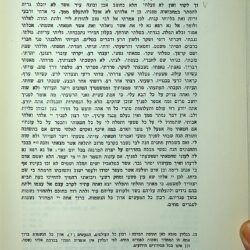
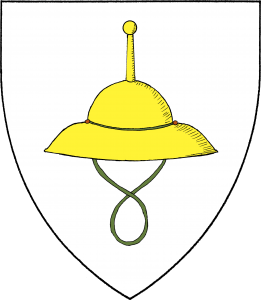
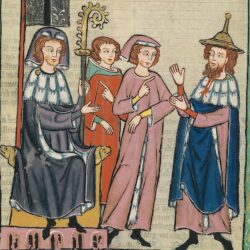
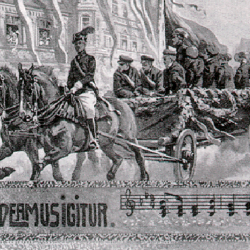

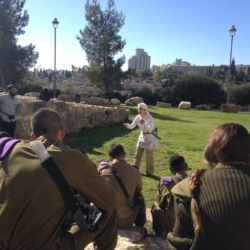




Leave a Reply